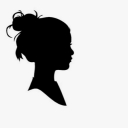But...have you read dystopian or fantasy fiction?
I know you love reading, so what do they call you? Book Worm, meh... I live books (to just love, isn’t enough) and I wouldn’t want to be called a worm, I am instead, a Book Wyrm.
If you are unfamiliar of this flattering term for us, clearly, you haven’t been exploring the genre of YA fantasy and dystopia. In my humble opinion, as a reader who is not gobbling up the rich and raging titles under dystopian literature is missing out on an abundant fountain of creativity and magic in the form of words. I mean, they have imagined a complete world-view, theoretically and logically possible in the future derived creatively from the reality today—it’s fiction at its very best. Most importantly, why ever lose faith in magic and the battle against evil.
wyrm (noun; plural wyrms)
(poetic) dragon, particularly one without legs or wings.
(poetic) snake, particularly a large one.
Did you know that in the Thailand military coup of 2014, protesters actually used the revolutionary three-fingered salute immortalised in Suzanne Collin’s The Hunger Games? I’m not making this up.
You cannot afford to downplay dystopia as non-serious or light reading; there is a whole generation of children, teenagers and even adults who have become book lovers because of these novels. Whether it was the magical alternate world of Harry Potter or the dystopian future in The Divergent Series, and even if it was the movies that triggered it, the young ones have turned to books.
According to best-selling author Manjiri Prabhu who has penned Revolt of the Lamebren, a fantasy tale,
"Dystopia is the opposite of Utopia, and dystopian books tell you exactly why the future will be no utopia. So, if you think of it as a fantasy that takes place in some point in future, unimaginable, out-of-reach, which bears no connect to our life, think again. Dystopian literature is what I call ‘Predictive Literature or Fiction’. Or at least that is what the The Super-Dome Chronicles: Revolt of the Lamebren is all about. It predicts or warns us of what is going to happen one fine day in the world. And that is definitely something that concerns us, because it stems from the concerns of today. It is actually a social, political, emotional comment on what is happening around us today. The ‘tomorrow’ of the future is actually a reflection of our ‘today’.
In that sense, it is serious literature and a genre which can jolt you awake and make you aware of the fragility of life, values, peace and love.”
Reading dystopia is not only a fulfilling thrill, but also an amazing deep-connect with the reality of social-evils and excesses that could claim the future. Besides, how hunky-dory is the present world scenario today and how much control do we actually have if things go haywire right now?
Therefore, start reading dystopian fiction to,
- Allow the author to scare you a lot, or a little because you control the amount of fear or discomfort you feel. How we wish for this control over our real life and circumstances, and here you can let yourself be threatened by the looming despair, loss and hopelessness because rest assured in the end it will turn out alright.
Get out of this drab, realistic world and experience living in a dystopian future of high adrenaline and constant fear and all this from the safety of your couch. Of course, we can’t function in a world without 30 mins of pizza delivery but we can verily escape into that life of the unforeseen future through the pages.
- Ride in a fast-paced tale full of tension, action, limits and great characters. Dystopian texts engage a reader in multiple levels: it could be a distraction of immersing in a fascinating, other-worldly premise or the philosophical untangling of the nature of man.
It’s amazing how dystopian literature is giving us pointers and social messages on the human excesses, climactic disruptions, etc. and still nowhere near ‘preachy’.
- Know: you and I are not going to be around for the End of Days! Face it; we are definitely going to miss the apocalypse and the new beginning thereafter. And there is something very poignant yet intriguing about the prospect of the end of our species, of our planet that strikes our very core.
So, why should we let go of the numerous ‘what if’ scenarios in those promising dystopian novels out there. Futuristically imagined societies, norms, taboos—and all them with a pivotal difference to the present.
- Believe: that though we have to face our everyday reality with stoicism and sometimes a despair of, ‘it isn’t fair’ we have to trudge along. In these novels, though the reality is much darker yet there are ordinary (sometimes enhanced) people who emerge as heroes, who hail the possibility of a change, of hope.
And that’s perhaps the best thing about dystopian novels, that there is always hope. And, that is the reason why, I’ll want my child to read them and advocate that everyone else does too.


Comments